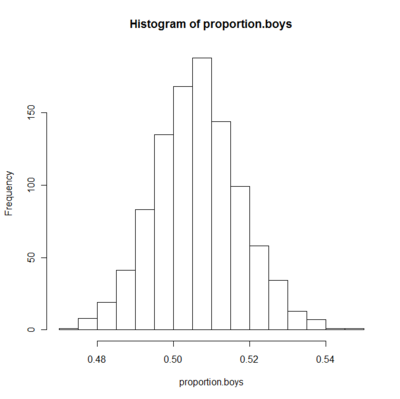The Long View 2006-01-31: Save the Dinosaurs; Unfriendly Democracy; News Medley
I think John Reilly also mentioned this in other places, but here he advances the suggestion that law school is a scam, and could be folded into an undergraduate curriculum. I lack subject matter expertise to comment on law school in particular, but it seems at least plausible to me.
Bryan Caplan argues that education is less about skills and facts, and more about signaling that you have valuable qualities. In general, I find Caplan's case persuasive, although I think it would be easy to take this idea too far. Some data points in favor: I turned out to be a decent engineer, despite not studying that field in school. The English university system currently uses a much shorter timeframe for degrees, but has equivalent results.
It is always risky to generalize from a n of 1, even more so when it is your own experience. An example of what I am talking about can be seen in this twitter exchange with Greg Cochran about the evolutionary fitness cost of schizophrenia:

It isn't really a good argument to assert "I turned out fine." With that in mind, not everyone with my education background makes a good engineer. There are other personal qualities that matter. Conditional on those things, educational background loses importance as a predictor of success. If you know what to look for.
Save the Dinosaurs; Unfriendly Democracy; News Medley
Hugh Hewitt has buried the dinosaurs of the Main Stream Media (or at least so he seems to imagine) in an article in The Weekly Standard of January 30 entitled "The Media's Ancien Regime." There he describes his visit to the Columbia School of Journalism. He was well received by all concerned, particularly the dean, Nicholas Lemann. He found a relatively small graduate institution that has become very keen on teaching its students serious analytical skills, including a fair amount of number-crunching. Hewitt thinks it all for naught:
Harvard Crimson
It is certainly the case that journalists often seem to be woefully underinformed about what should be common knowledge. (Fr. Neuhaus remarked last week on the reporter who responded to his allusions to the pope as "the bishop of Rome" with a query about whether it was unusual that the current pope was also the bishop of Rome.) However, anyone is gravely mistaken who thinks that New Media and the blogosphere make good the deficit.
Blogs are engines of critique. They are not particularly good sources for primary news. For that, we will continue to need journalists to assemble the first-draft narratives for critique and elaboration in the noosphere (a term i use advisedly, since more than blogs are at work here). It's true that journalism used to be primarily a sort of arbitrage between information-poor and information-rich domains. It still does that, particularly at the local level, where public events enter the information stream only if a shoe-leather reporter puts them there. The effect of communications technology, which simplifies reporting for many classes of stories, is not to abolish journalism, but to allow it to focus on generating value through synthesis.
The preceding paragraph may be the geekiest thing I have ever written. Anyway:
The problem is that the type of person best suited to this is the sort of widely educated liberal-arts graduate that the universities seem determined not to produce any longer. There is something wrong with the very idea of journalism as an academic major, much less as a graduate-school subject. (Law school, in contrast, could easily be folded into an undergraduate curriculum; it's law school that the hoax.) At the end of four years of college, you should know enough languages, and accounting, and history, and sociology, to make yourself useful in a newsroom, assuming you can write acceptable expository prose. There is a craft to reporting, of course. It is ably described in any number of memoirs. Reading them may be more helpful than journalism school.
* * *
Walter Russell Meade's proposal to abolish college, which appears in The Weekly Standard Online is ingenious:
There is no reason the government should try to prevent American families who value the traditional college experience from paying hundreds of thousands of dollars, but perhaps it could offer an alternative: a federally recognized national baccalaureate (or 'national bac') degree that students could earn by demonstrating competence and knowledge.
This would leave us with, what? A think-tank industry to replace the research university and a Chinese-style civil-service test to replace the undergraduate college?
* * *
That Spengler takes no prisoners, if we may so judge by his latest at Asia Times:
Fight a dictatorship, and you must kill the regime; fight a democracy, and you must kill the people. Two years ago I called George W Bush a “tragic character” (George W Bush, tragic character, November 25, 2003) who “wants universal good, but will end up doing some terrible things”. Now we have begun the third act of his tragedy, which shatters the delusions that led him to the edge of disaster. President Bush met Nemesis in the form of Hamas, whose election victory in Palestine last week makes clear that democracy can empower the war party as well as the peace party.
Look, maybe this will help. The purpose of promoting democracy is not to create pro-American regimes. It is to create regimes that have relatively transparent and responsive political systems. They can be as anti-American as they please, but provided they nurse their grudges in public and have to convince the rest of the world that they are stable enough to do business with, then there are far preferable, far safer, than even the friendliest tyranny.
* * *
If all these recent elections are starting to run together in your mind, this piece of January 28 by David Warren will surely make it worse:
After the first TV reports that their party would win the Canadian election, Conservative campaign workers began smashing windows in the Parliament Buildings, and in government offices around Ottawa. They roved through the corridors, beating up clerks and civil servants suspected of having Liberal Party connexions. From St John’s to Victoria, both winning and losing Conservative candidates took to the streets, leading heavily armed supporters in ski-masks, followed by millions of happy, cheering, banner-waving CPC voters, dressed in toques and scarves. Merchants and homeowners raced to get Liberal and NDP signs out of view, as the Tory hordes marched through towns, firing their guns in the air, vandalizing post offices, and looting shops belonging to their opponents.
Perhaps a good test for a perspective journalist would be to examine a pile of putative newsstories and pick out the ones that, like this one, are jokes.
Copyright © 2006 by John J. Reilly


Comments ()